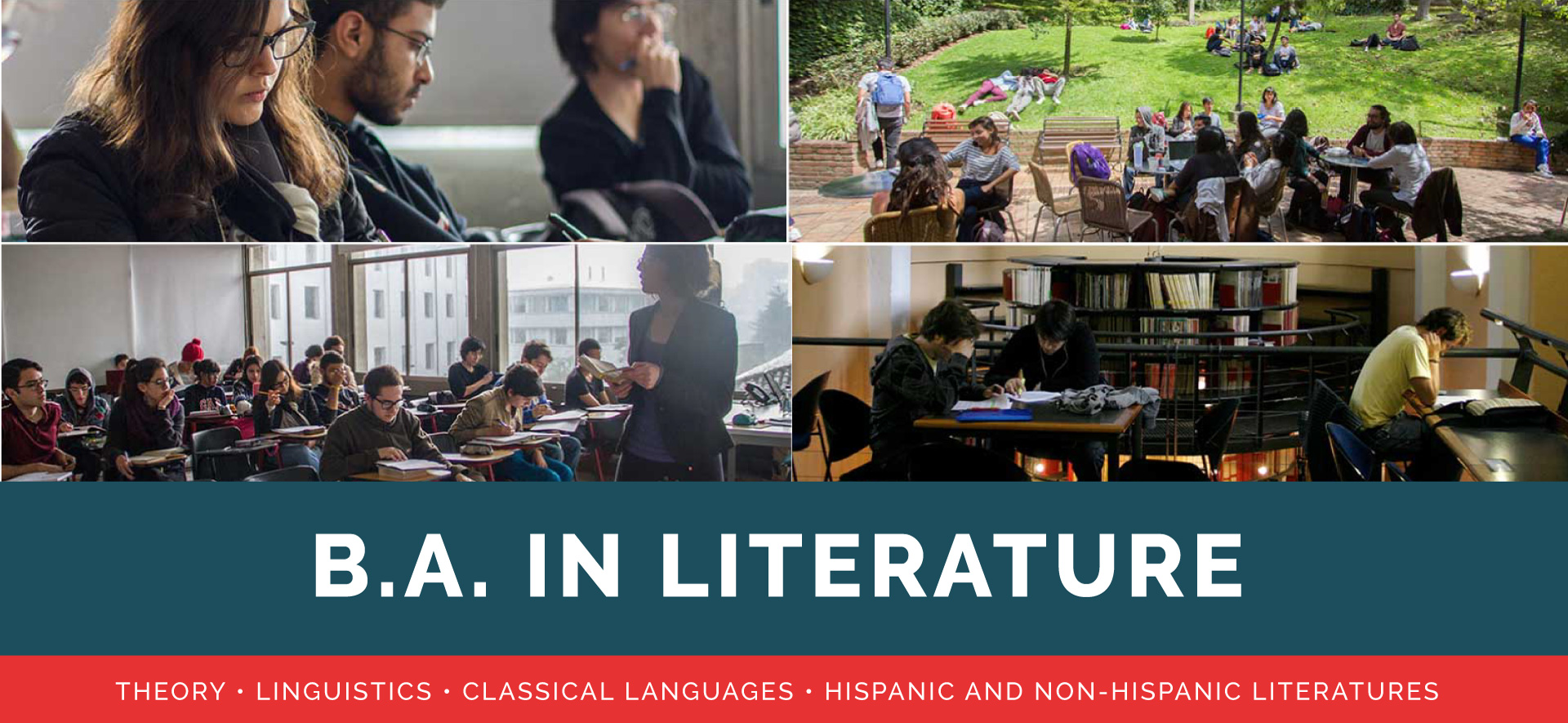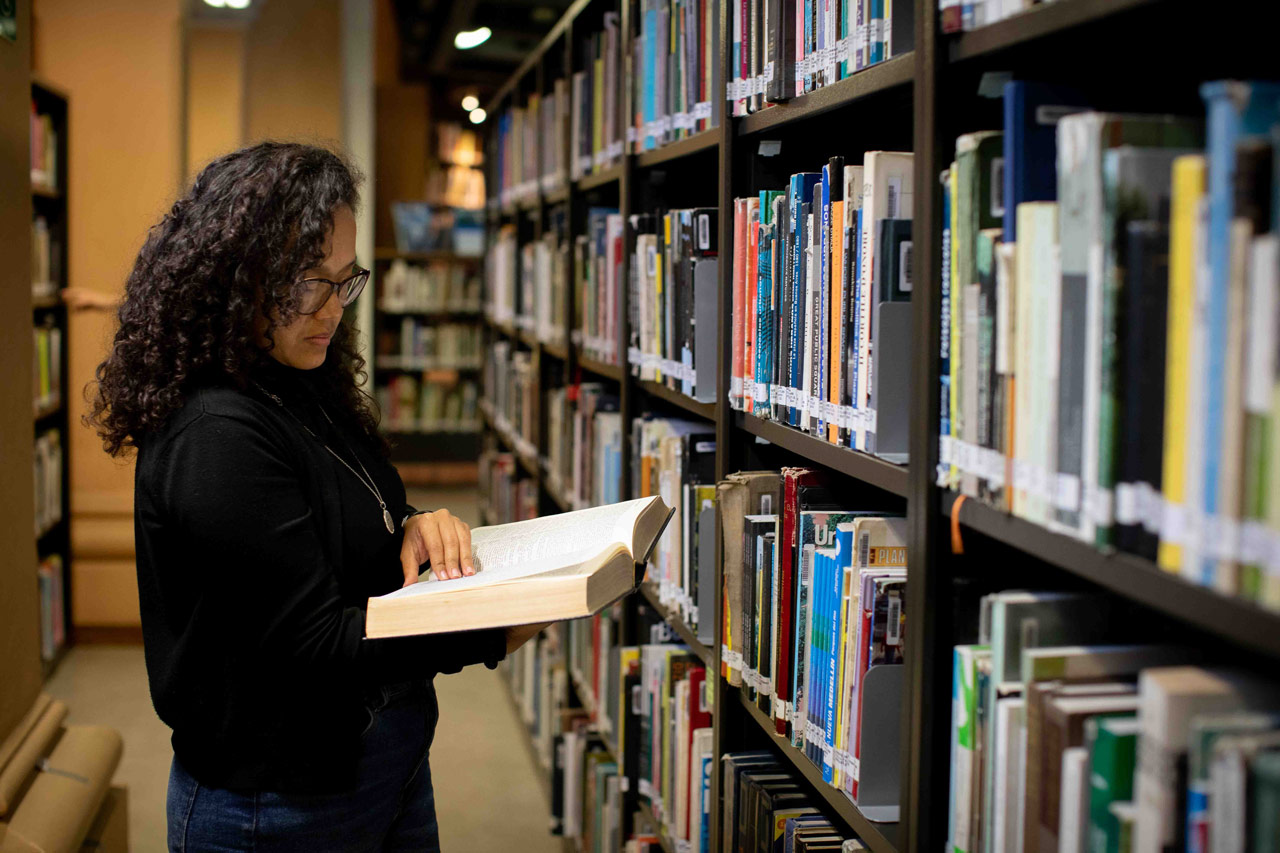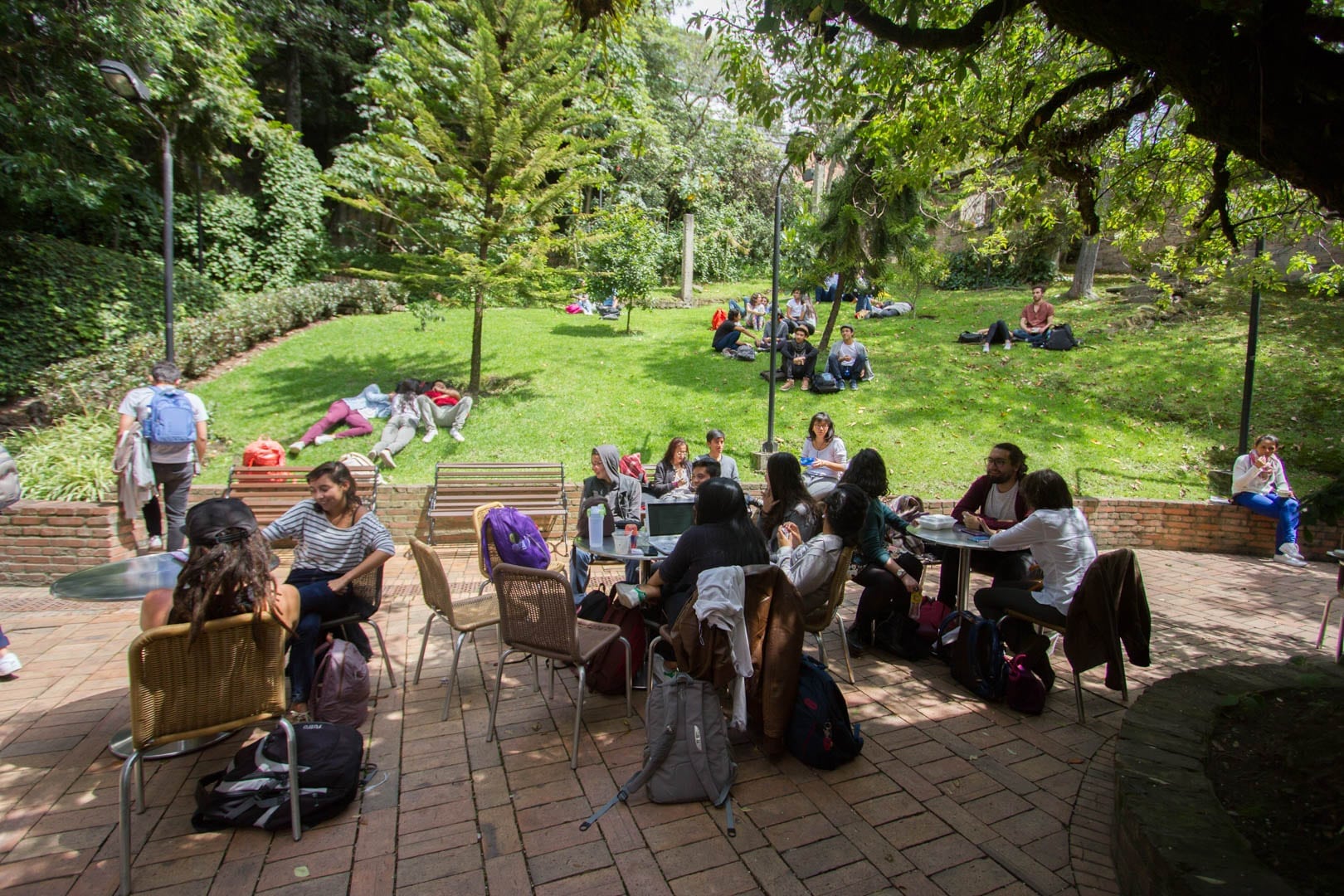
The undergraduate program in Literature aims to confront students with texts from various Hispanic and non-Hispanic literary traditions, in a broad historical and geographic spectrum. Through focused reading, the student will acquire theoretical concepts of the discipline and develop skills that allow for the appropriation of different critical and conceptual positions. In this way, the program promotes the training of researchers in the field of literary studies, with attention to the methodologies of the discipline, and it encourages autonomy, ethical reflection, and dialogue with other disciplines.
In order to meet these objectives, the program offers courses and seminars in the areas of Hispanic and non-Hispanic literature, theory, classical languages, and linguistics. It also offers creative writing, editing, translation, and teaching workshops. As part of the curriculum, it also promotes courses in journalism and cultural management, which are offered by other departments of the university. Students can fulfill their final graduation requirement in a variety of ways, which are designed to allow them to explore possible professional fields: they may pursue a research project (undergraduate monograph or research assistance), or editorial, teaching, social, cultural journalism, and cultural management internships.
In order to promote the professional development of future graduates, the program provides orientation to students regarding their future performance through seminars, workshops and internships.
In recognition of its high quality, in 2009 the undergraduate Literature program was received from the Ministry of National Education its accreditation for a period of eight years.



Objectives:
Through the rigorous study of Hispanic and non-Hispanic literatures, as well as critical and literary theory and research methodology, the Department of Humanities and Literature at Universidad de los Andes trains well-rounded professionals in the area of literary studies, who are capable of contributing to the construction of knowledge and to the critical reflection on literature. Graduate of the department develop and strengthen the knowledge that allows them to perform optimally in fields such as teaching, research, publishing, journalism, translation, theater, and cultural management.
Learning Objectives
Learning objectives are arranged into five competencies. These competencies are developed in a transversal manner throughout the program. Upon completion of the program, the graduate will be able to:
- Identify, weigh, contrast, and analyze the phonetic, morphological, and syntactic units of Spanish and of a classical language, so that they can be extrapolated for the study of any other language and for discourse analysis down to its minimum constituent elements.
- To communicate effectively, orally and in writing, by creating coherent, elaborate, and complex discourses.
- To read, appreciate, and rigorously analyze literary texts from various traditions, from different perspectives, and taking into account the historical context, the conditions in which they were produced, their circulation and reception, and other factors relevant to their full understanding.
- To think critically, comprehensively, ethically, and creatively, in order to influence the environment.
- To formulate and solve complex problems that require the integration of various disciplines.
Applicant Profile
Prospective students for the Literature program show interest in reading and writing. They have the ability to write different types of texts and perform interpretive analysis. They express themselves fluently and have a willingness to do research. They are sensitive to cultural, literary, and artistic activities, and they are interested in learning about, studying, and disseminating them.
Program Graduate Profile
Graduates of the Literature program of the Department of Humanities and Literature can work in various fields of the discipline, including: research, criticism, teaching, cultural management, journalism, and creative writing. They also have the knowledge and skills to successfully join the publishing industry and to do consulting in audiovisual media.